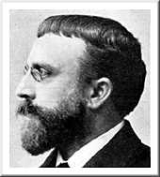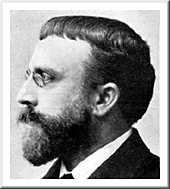
Paul Vidal
Encyclopedia

France
The French Republic , The French Republic , The French Republic , (commonly known as France , is a unitary semi-presidential republic in Western Europe with several overseas territories and islands located on other continents and in the Indian, Pacific, and Atlantic oceans. Metropolitan France...
composer
Composer
A composer is a person who creates music, either by musical notation or oral tradition, for interpretation and performance, or through direct manipulation of sonic material through electronic media...
, conductor
Conducting
Conducting is the art of directing a musical performance by way of visible gestures. The primary duties of the conductor are to unify performers, set the tempo, execute clear preparations and beats, and to listen critically and shape the sound of the ensemble...
and music
Music
Music is an art form whose medium is sound and silence. Its common elements are pitch , rhythm , dynamics, and the sonic qualities of timbre and texture...
teacher.
Paul Vidal was born in Toulouse
Toulouse
Toulouse is a city in the Haute-Garonne department in southwestern FranceIt lies on the banks of the River Garonne, 590 km away from Paris and half-way between the Atlantic Ocean and the Mediterranean Sea...
. He studied at the conservatoires in Toulouse and in Paris, under Jules Massenet
Jules Massenet
Jules Émile Frédéric Massenet was a French composer best known for his operas. His compositions were very popular in the late 19th and early 20th centuries, and he ranks as one of the greatest melodists of his era. Soon after his death, Massenet's style went out of fashion, and many of his operas...
in the latter. He won the Prix de Rome
Prix de Rome
The Prix de Rome was a scholarship for arts students, principally of painting, sculpture, and architecture. It was created, initially for painters and sculptors, in 1663 in France during the reign of Louis XIV. It was an annual bursary for promising artists having proved their talents by...
in 1883, one year before Claude Debussy
Claude Debussy
Claude-Achille Debussy was a French composer. Along with Maurice Ravel, he was one of the most prominent figures working within the field of impressionist music, though he himself intensely disliked the term when applied to his compositions...
did. On 8 January 1886, in Rome, Vidal and Debussy performed Franz Liszt
Franz Liszt
Franz Liszt ; ), was a 19th-century Hungarian composer, pianist, conductor, and teacher.Liszt became renowned in Europe during the nineteenth century for his virtuosic skill as a pianist. He was said by his contemporaries to have been the most technically advanced pianist of his age...
's Faust Symphony
Faust Symphony
A Faust Symphony in three character pictures , S.108, or simply the "Faust Symphony", was written by Hungarian composer Franz Liszt and was inspired by Johann von Goethe's drama, Faust...
at two pianos for Liszt himself, an after-dinner performance that Liszt apparently slept through. The following day they played Emmanuel Chabrier
Emmanuel Chabrier
Emmanuel Chabrier was a French Romantic composer and pianist. Although known primarily for two of his orchestral works, España and Joyeuse marche, he left an important corpus of operas , songs, and piano music as well...
's two-piano Valses romantiques for Liszt.
Vidal conducted at the Paris Opera and the Opéra-Comique
Opéra-Comique
The Opéra-Comique is a Parisian opera company, which was founded around 1714 by some of the popular theatres of the Parisian fairs. In 1762 the company was merged with, and for a time took the name of its chief rival the Comédie-Italienne at the Hôtel de Bourgogne, and was also called the...
and taught at the Paris Conservatoire; his pupils included Jacques Ibert
Jacques Ibert
Jacques François Antoine Ibert was a French composer. Having studied music from an early age, he studied at the Paris Conservatoire and won its top prize, the Prix de Rome at his first attempt, despite studies interrupted by his service in World War I.Ibert pursued a successful composing career,...
and Vladimir Fédorov
Vladimir Fédorov
Vladimir Fédorov was a French musicologist, librarian, and composer of Russian birth. He studied with André Pirro at the Schola Cantorum de Paris and studied composition privately with Paul Vidal...
. He died in Paris in 1931.
His compositions are virtually forgotten today: they include the opera
Opera
Opera is an art form in which singers and musicians perform a dramatic work combining text and musical score, usually in a theatrical setting. Opera incorporates many of the elements of spoken theatre, such as acting, scenery, and costumes and sometimes includes dance...
s Eros (1892), Guernica (1895) and La Burgonde (1898); the ballet La Maledetta (1893); a cantata Ecce Sacerdos magnus; Fête russe (1893); and incidental music
Incidental music
Incidental music is music in a play, television program, radio program, video game, film or some other form not primarily musical. The term is less frequently applied to film music, with such music being referred to instead as the "film score" or "soundtrack"....
to Théodore de Banville
Théodore de Banville
Théodore Faullain de Banville was a French poet and writer.-Biography:Banville was born in Moulins in Allier, Auvergne, the son of a captain in the French navy. His boyhood, by his own account, was cheerlessly passed at a lycée in Paris; he was not harshly treated, but took no part in the...
's Le Baiser (1888) and Catulle Mendès
Catulle Mendès
Catulle Mendès was a French poet and man of letters.Of Portuguese Jewish extraction, he was born in Bordeaux. He early established himself in Paris and promptly attained notoriety by the publication in the Revue fantaisiste of his Roman d'une nuit, for which he was condemned to a month's...
' La Reine Fiammette (1898). In collaboration with André Messager
André Messager
André Charles Prosper Messager , was a French composer, organist, pianist, conductor and administrator. His stage compositions included ballets and 30 opéra comiques and operettas, among which Véronique, had lasting success, with Les p'tites Michu and Monsieur Beaucaire also enjoying international...
, he also orchestrated piano music of Frédéric Chopin
Frédéric Chopin
Frédéric François Chopin was a Polish composer and virtuoso pianist. He is considered one of the great masters of Romantic music and has been called "the poet of the piano"....
into a Suite de danses (1913).
He is perhaps better known today through his keyboard harmony exercises, Basses et Chantes Données which was a favorite teaching tool of his pupil, the legendary pedagogue Nadia Boulanger
Nadia Boulanger
Nadia Boulanger was a French composer, conductor and teacher who taught many composers and performers of the 20th century.From a musical family, she achieved early honours as a student at the Paris Conservatoire, but believing that her talent as a composer was inferior to that of her younger...
, and subsequently many of her students including Narcis Bonet who has republished a selection of these exercises under the title Paul Vidal, Nadia Boulanger: A Collection of Given Basses and Melodies".

